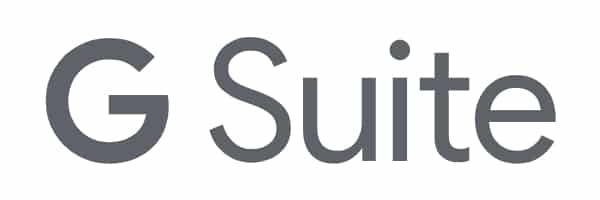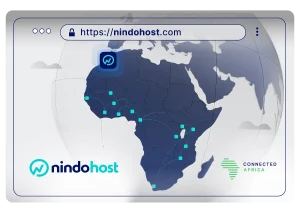G Suite has now been renamed "Google Workspace." Does this name change simply reflect a desire to change, or is it a more pronounced transformation?
For more than a decade, G Suite has been a collection of Google's professional productivity tools. However, the way people work has evolved, and Google had to do something to symbolize this transformation.
Those of you who regularly use Gmail may have noticed the integration of a Google Meet tab (formerly Hangouts Meet). This was, in fact, one of Google's first steps toward building a single workspace that allows you to do many things without changing screens.
What is G Suite? What is Google Workspace? What are the benefits of Google Workspace? Why should you consider Google Workspace for your business? Is there a difference between this new concept and that of G Suite? Answers to these 5 questions below.
Before Google Workspace, there was G Suite...
Before we talk about Google Workspace, let's take a brief look at G Suite. This service was launched in 2006 to allow organizations to use Google services on their own domains for a monthly subscription fee.
To learn more about the history of G Suite, we recommend the following article on Wikipedia.

Instead of managing their own network storage, email server, and various other tools, G Suite allowed businesses to use a "bundle" of productivity and collaboration tools in Google's cloud as the basis of their operations.
The original set of tools included Gmail, Google Talk, Google Calendar, and Google Page Creator. Over time, it expanded to include Google Docs, Sheets, Slides, Forms, Google Drive, Google Chat, and Meet.
All of these tools are available for free to consumers, but they lack certain features. Thus, G Suite customers get custom email addresses with the company's domain name (e.g., @nindohost.com instead of @gmail.com), cloud storage, administrative tools, 24/7 customer support, and more.
What is Google Workspace?
Google Workspace continues the evolution of G Suite. In fact, it's not even the first name change. The service was originally called "Google Apps for Your Domain." Later, it was renamed simply "Google Apps," before finally being rebranded as "G Suite" in 2016.
Google explains that the name "G Suite" had the connotation of a very traditional work environment. As the concept of the workspace changed, the company felt that the name should reflect this change. In this sense, and for the story to come, let's recall that at the time we write this article, the Covid-19 pandemic is still raging around the globe, recording new cases and deaths daily. Several companies, including Google, have been forced to adopt remote work from home, relying on communication and productivity tools like Google Workspace.

The new Google Workplace interface
At its core, Google Workspace is the same service as G Suite. It is the culmination of several changes Google made throughout 2020. The different tools are better integrated with each other. Rather than constantly switching between Gmail, Docs, Meet, etc., everything is available in one centralized location.
Is Google Workspace free?
Google Workspace is not a free service, although all the tools available in this suite have free consumer versions. Thus, different pricing options exist to meet your organization's needs.
List of tools included in Google Workspace:
- Gmail
- Google Drive
- Google Docs, Sheets and Slides
- Google Forms
- Google Sites
- Google Calendar
- Google Chat
- Google Meet
- Google Currents
- Google Keep
- Google Vault
- Jamboard
- Google Workspace Marketplace
- Google Cloud Search
- Google Hire
The benefits of Google Workspace for business
As we have mentioned before, this is not just a simple "rebranding" done on a whim. It is an important step towards modernizing Google's work platform.
G Suite (and similar products like Microsoft Office Suite) were designed for a bygone era. Today, these tools still imply being in a traditional box where work is done in an office building, at least according to Javier Soltero, head of Google Workspace.
He adds that this is clearly no longer the case in 2020, with so many people working from home and relying on the web to communicate and be productive.
The new nickname "Workspace" gives an impression of mobility and shows that work can increasingly be done anywhere.
With Google Workspace, do more from one place
That being said, being able to be productive anywhere doesn't mean you have to work all the time. Google takes this into account with the new Gmail, which offers out-of-office notices and a do-not-disturb feature to help manage time.
However, the real way Google Workspace wants to manage your day and allow you to do everything in one window. The new Gmail brings together all of Google's key communication tools in one app. Email, instant messaging, and video calls are now side by side. You no longer have to decide which app to open or navigate to; simply click in Gmail to find the tool that suits you.
Create and view documents from anywhere...
In the context of simplifying work, an upcoming feature will allow you to create a new document directly from the Chat and let external people from your company edit it. Meanwhile, the "Meet picture-in-picture" function will soon be available for documents, spreadsheets, and slides to enable real-time collaboration.
Another added convenience is being able to quickly preview a linked file in any document. Available now, hovering over a linked slide file opens an inline window that allows you to move from page to page.
Should you consider Google Workspace for your business?
Absolutely!
If you want to join the new dynamic of productive mobile and remote work, you should seriously consider switching your current email to Google's cloud. Here's what you'll gain:
- Increased productivity: a range of multi-function tools with all the benefits of a traditional office suite;
- More collaboration: real-time collaborative work on the same document and secure, high-quality video conferences directly from your email or calendar;
- Better organization: a powerful calendar that integrates with all these tools natively;
- No maintenance issues: guaranteed continuity of service and data backup. Everything is taken care of by Google 24/7.



